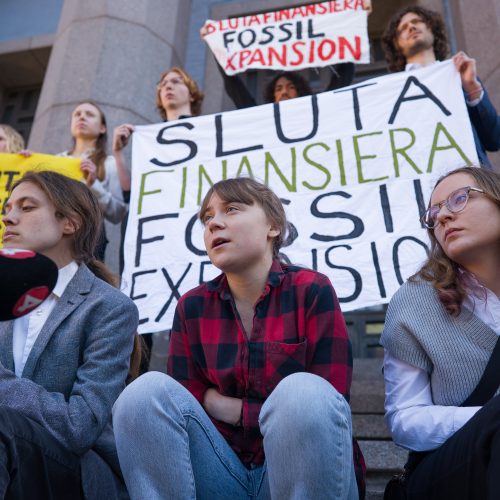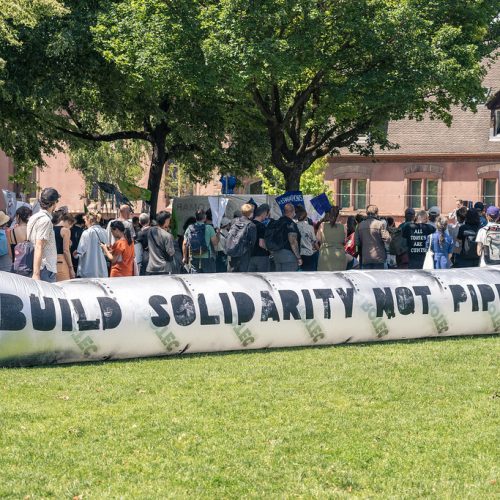Fossil finance in Sweden – Youth take action against SEB and Riksbanken
Nordic climate justice movement takes decisive action to claim back power over finance

News
What does it mean to democratise and decolonise the financial system?
The current design of the financial system does not work for our benefit but prioritises short-term profits for the few. We can change that.

News
Tell finance industry watchdogs to protect people and planet, not big oil and gas
Tell finance industry watchdogs to protect people and planet, not big oil and gas

Actions
Action

Add your name!
Sign our petition to tell finance industry watchdogs to protect people and planet, not big oil and gas
Add your name